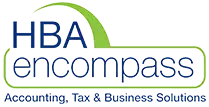When people think about selling their business, there are usually two things that come to mind.
- One, is they sell it to a newcomer who comes in and buys the business and they take the money and run and do what they want.
- two, they want to pass it down to family members
but there is a third option when thinking about selling businesses, and that’s your employees.
These are the people who work in your business day in and day out, they know how it runs, and they genuinely have an understanding of how profitable it is. In some instances, they’re quite happy to put up their hand and buy-in.
Having an exit strategy that is simply selling out to someone else is not necessarily the best exit strategy. You do need to keep in mind, however, that sometimes selling to employees may need a bit of tweaking in the way that you sell it, you may not get all your cash to start with, you may need to vendor finance, or something like that.
We had a really, really good outcome for a client about three years ago, where they sold their business to the manager that they had in place. We did the maths and valued the business at one level, which actually put them above the small business capital gains tax rules, which meant that the tax that they had on selling the business was significant. We took another approach and looked at a different way of valuing the business and we were actually able to lower the buying price of the business, which got them below Small Business CGT threshold. This meant that although the sale price was less, that the tax was also less, they actually ended up with more cash in their hand at the end of the day than if they’ve got a higher sale price.
What that means for their employee was he wasn’t having to borrow as much to buy into the business. They left some butter on the bread, so to speak for the new guy coming in, they ended up with more cash in their hands and it was a real win-win situation.
Moving forward, the vendor finance agreement allowed him to pay future dividens so that he got some in cash and the rest went to vendor finance. There was an agreement in place that they had security over the shares in the company, that every time there was a dividend, then the dividend or a certain portion of the dividend went to the old owners to pay off their loan.
There’s ways and means of doing it, it might mean you get all your cash up front, but it could mean a much better outcome for you and your employees. And let’s face it, a lot of employees become family anyway.
The other thing is to think about selling down pieces of your business as you go to your employees ,bringing them in because it then makes them sticky, and it makes it a lot harder for them to resign and go elsewhere. It makes it harder for other people to poach them, but also a similar process in that you can use dividends to build up equity to then buy you out for the balance of the shares at a later date.
Think about that one. It’s a little bit left field, a lot of people don’t consider it. But if you’ve got a business that you’re thinking about selling have a chat with us, and we can look at your options. We can look at the tax situation, the cash situation, and then come up with a plan then if necessary, we refer you to a business broker and get it sold. But still do consider your employees because sometimes it’s a really great win-win for both parties.


